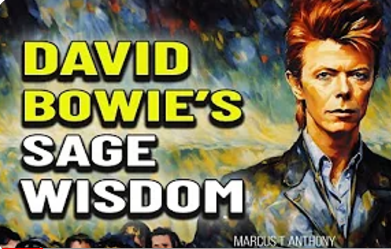This is the second part of a three posts I am writing about this topical issue.
- In the first post I described the problem regarding the presence of hard-core skeptics, and their undue control of Wikipedia pages related to spiritual and psi phenomena.
- In this second post I will outline three different approaches to the problem, and the merits of each. I will also write why certain approaches are likely to be counterproductive – and potentially spiritually regressive.
- In the final post I will provide some more practical tools and strategies, and suggest how this entire situation can be of great benefit to anybody on a path of awakening.
Before I get down to business and make some suggestions about how to approach the problem of Guerrilla Skeptics on Wikipedia, allow me to clarify a personal position which is central to my perspective.
In my own life I have gone through phases of personal development. At first I was a skeptic, refusing to take anything seriously that dint have hard science behind it. But over time that attitude slowly softened. In my mid-twenties I explored the visionary realms through dreams and meditation. Several years later, when I finally admitted to myself that I had spiritual and psychological which issues I needed to address, I worked on self-healing and the emotional body. This involved a great deal of inner child work. Finally, I came to appreciate the importance of mindful presence.
One thing I learned in recent years is that a belief in the spiritual or psychic realms keeps one locked in “the mind”. Simply adopting a spiritual worldview – as opposed to, say, a scientific materialist worldview – is not enough to transcend the dichotomies that have created the split in the modern mind (reason vs intuition).
Developing intuitive, visionary or psychic cognition is not particularly beneficial in itself. It is true that these abilities will let you know that the modern world and science has got the big picture very wrong. And they can be helpful in decision making, especially regarding the big life choices. But they won’t free you from the grip of mind (ego, if you prefer). All visionary experiences and even the most profound peak experiences quickly pass, leading one back into the mind’s world of doubt, fear and separation. Unless a person becomes fundamentally established in presence, the mind will always cut back in.
This brings me to my specific point about what to do about Guerrilla Skeptics. Here I am going to simplify things and present just three distinct possible approaches, and the benefits and drawbacks of each. The points I make here are going to be general. I will keep more specific suggestions for my next post.
Fight the bastards
This is – either explicitly or implicitly – the stance that many advocates on either side of the “psi wars” adopt. The idea is to take up effective arms, man the computers, and start hacking your opponent. The benefit seems to be that you can get out there and really get your teeth into your opponent. There is the sense that you can make a genuine contribution, and stand up for the truth. It is, in theory, a noble path. But there is a problem.
The danger with this approach is that it tends to ensnare the individual the mind, in a battle for control and power. In other words, it can lock you in the little world of the ego, and all its suffering.
Pro-psi folks on a wisdom path who start fighting skeptics and “unbelievers” may pay the price of sacrificing their own spiritual awakening. I maintain that you cannot fully awaken into presence while you are fighting anyone or anything, or rejecting the world in any way. Those who fight the darkness typically become ensnared in it.
I saw a classic example of this recently on Facebook, where an influential psi-psi proponent let loose with a torrent of rage that was so obscenity-laden I thought I was reading a script from a porn movie. He must have used the word “fuck” a dozen times in one short post. It was fuck him, fuck that, fuck them all. His rage against the other was obvious and extreme.
Here I use an extreme example, but if many pro psi-proponents are perfectly honest, they will admit that at times their own minds degenerate into similar waves of rage and hatred – against critics. In other words, they are still playing the same game as the fundamentalists and skeptics – “Destroy the other guy, because he is deluded and evil!”
Are you really willing to sacrifice your own awakening, your own peace of mind, just to satisfy your mind’s need to be seen to be right? Personally, I don’t think it is worth it.
Let them be. It’s all in divine perfection
It is not uncommon for mystics and spiritually-inclined people to prefer to avoid confrontation with people, society and ideas. A common position is that the greatest gift we can offer the world is our own awakening (I agree with this last point). Because all minds are connected, by merely awakening from the dream of mind, you already help shift the world in a very powerful way. Indeed, by fighting the world, you may lose your own awakened state, and thus delay the conscious evolution of our species, if only by a little. Perhaps then, the greatest contribution you can make, looking at the big picture, is not to fight people like the Guerrilla Skeptics (they are not going to listen to anything which challenges their position anyway), but to enlighten your own mind.
There are other rational reasons for just letting mainstream science, society and even the skeptics coast along as they are, or at least with minimal resistance. It is my conviction that eventually the evidence and arguments for the reality of many so-called “paranormal” cognitive abilities will win out. They will win out because there a profound truths which underpin the arguments and the evidence will only get stronger. History also tends to go in cycles, and when waves of development become unbalanced – as with the Deckard Confusion and the mechanistic paradigm – eventually people tire of the extremes and things begin to rebalance. This is already clearly happening in regard to the public acceptance of psi phenomena, as we saw with the huge backlash against TED organisation when they (effectively) censored talks by Sheldrake and Graham Hancock. So it is logical to assume that this trend will continue.
But then again, how long will that take?
Engaged presence
What if there are more specific issues at stake, such as the professional credibility of hard-working and brilliant people like Rupert Sheldrake and Dean Radin? Should Wikipedia just be permitted to be overrun with misguided and power-crazed skeptics who do not understand many of the discourses they seek to control?
In at least some cases, it is both desirable and necessary to take concerted action. My position is that the key is to engage, but gently, and from a position of genuine power. And the kind of power I am referring to here is something that comes from within. This mirrors my preferred way of dealing with unconsciousness in others, and the various social, political and institutional problems which emerge from it.
It is possible to confront much ignorance and aggression with a powerful yet non-confrontational approach which I call engaged presence. This is essentially the same means that underpinned the non-violent resistance of Gandhi and MLK. Here you engage those who are committed to disempowerment, destruction or colonisation, but from a default position of peace – what I call profound presence. But before I describe this, let me make an important point.
A multi-layered perspective
I like futurist Sohail Inayatullah’s approach to dealing with change and the creation of possible futures. Inayatullah acknowledges that problems and discourses are multi-layered.
First there is “the litany” – the readily observable or measurable aspects of the problem. With Guerilla Skeptics on Wikipedia, this would be arguments over the data.
Then there is “the system” in which the problem is embedded. Referring to debates about psi phenomena, we might point out that academic journals and universities tend to have rigid systems and political structures which make it difficult to challenge the status quo.
Thirdly, we have “the paradigmatic level” – implicit and often invisible knowledge structures. We might note that the mechanistic paradigm is implicitly accepted are being “real” by the Guerilla Skeptics, including its founding presuppositions (e.g. that matter is the foundation of the cosmos, rather than say, intelligence or consciousness).
Finally we have “the myths and metaphors”, which are again embedded within the discourse and often unacknowledged. If you read many science magazines, they often use the term “hard-wired” when describing genetic encoding in the brain. This tends to reinforce the idea that the mind/brain is a computer – without actually acknowledging that this might be a self-limiting metaphor which obfuscates important dimensions of the subject matter.
I personally like to add a fifth level to Inayatullah’s model, that of “consciousness”. This is where much of my writing is focussed. The fifth level is where you work on your own fundamental nature, the way you employ your mind. Engaged presence is grounded at this level. Mindfulness requires self-awareness, including of the way that the mind seeks power and control over the world and information. The mind’s goal is to ensure that its worldview is not threatened.
The most important aspect of Inayatullah’s way of examining problems at depth is that both analysis and action can occur at all levels. Indeed, in order for the most powerful insights into a problem to occur, all levels need to be addressed. Long-lasting and powerful change occurs when we address an issue deeply, not just at the superficial or surface level.
In this sense, typical challenges to Guerrilla Skeptics on Wikipedia often involve just two levels. They involve debating the data, and also working at the systems level – as Wikipedia is part of the system. Such an approach can be useful, but it remains limited if the deeper levels of the problem are not accessed.
Engaged presence is profound because it not only incorporates the deepest levels of a problem or discourse – it is grounded in the deepest level – consciousness.
Beginning with presence – not power and control
There is an expression of consciousness which exists beyond mental construct. It is silent and peaceful, and requires no attachment to beliefs, ideas or ideologies. Those people who develop the capacity to access this embodied presence rarely feel the need to overpower or control others at the mental level. They can begin any engagement from a position of silent power, because they do not need anything from others, and there is little or no desire to wrestle for control of information or interpretation.
Engaged presence is not possible while you remain deeply attached to your beliefs, regardless of how truthful you might think they are. If you have a spiritual worldview and an aggressive skeptic attacks your idea or work, it is perfectly normal to feel afraid – and then angry. My experience leads me to conclude that this is a physiological process, and it is hard to avoid. I personally find such a reaction to be automatic when anything that I have a belief about is threatened by an aggressive other.
Such reactions tend to be strong because the opponent is aiming at nothing less than destruction of your “mind” – your thoughts and beliefs. Likewise, when you attack your opponent, she will typically feel frightened and angered. The result is that both of you take offensive mental positions, and the whole thing just descends into “drama”.
If you begin with an agenda to overpower an “opponent”, then you are engaging in an act of cognitive violence.
With engaged presence you begin with stillness. If you do not begin with this – if you are not fundamentally grounded in presence – you will simply be fooling yourself – faking engaged presence while harbouring an agenda to annihilate the other. And destruction of the opposition is the covert agenda behind all judgment.
With engaged presence you begin by accepting that the person you are engaging is entitled to their own belief structures.
You also accept that you have the right to maintain and express your understandings.Engaged presence also assumes that you have the right to create preferred actions and preferred futures that you see as being more truthful or of greater wisdom than other possible intellectual stances and life paths.
Perhaps I should state that engaged presence does not guarantee victory in a debate or conflict. You may still “lose”. You might even find out that you did not have the complete story, that you have been partially or wholly misguided. But because you begin with peace, this is not taken personally.
Imagine that! Imagine that you could begin a debate or conversation topic with someone who holds diametrically opposed views to you – while feeling no threat from them – nothing but complete acceptance. Imagine that you could feel completely at peace, empowered and untouchable even when discussing the most evocative of topics! Imagine that you could listen to the other guy instead of fighting him, instead of hating him!
That would be engaged presence.
But how is that possible, at a practical level?
That is the topic of my next post.
Marcus







3 thoughts on “Guerrilla War, Unfair (Part 2)”
Pingback: Gurerilla War, Unfair (Part 3 – Engaged Presence) |
Pingback: Wikipedia and the Pseudoskeptical Weaselword Wars | The Science of Reality
If you can engage in a debate without becoming heated or upset then it is fair to do so. Not being attached to being right is also important.
I generally state my case, see from the responses if anybody is open to it, and if they are continue, and if they are not then walk away in peace.
What others believe is none of our concern, particularly if they are not open to our own viewpoint.